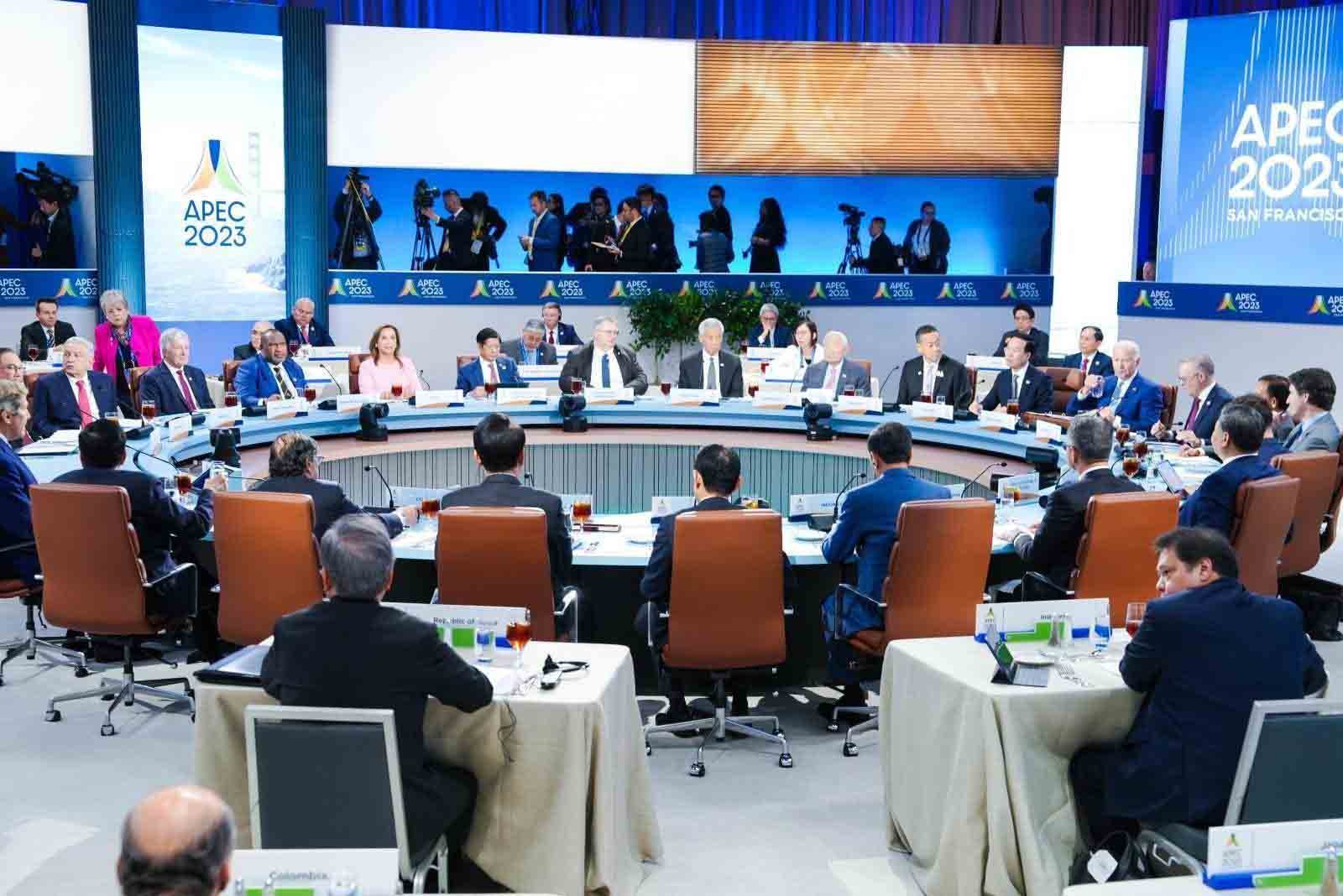In outlining the path to a just energy transition, President Marcos emphasized the need for inclusive, sustainable, and affordable measures.

In a pivotal intervention during the summit of Asia Pacific Economic Cooperation (APEC) Leaders’ Informal Dialogue and Working Lunch at Moscone Center on Friday, Nov. 17, President Ferdinand R. Marcos Jr. outlined strategic measures to tackle the soaring costs of green technology amid the global shift from fossil fuels to renewables, aimed at averting a climate crisis.
Addressing a diverse audience, President Marcos emphasized that cooperation in the development of green technology, liberalization of the sector, and the facilitation of green trade and investment are key to overcoming the financial barriers hindering the transition to renewable energy.
The costs of green technology refer to the expenses associated with developing, implementing, and maintaining technologies that aim to reduce or eliminate negative environmental impacts.
President Marcos proudly highlighted the Philippines’ commitment to the cause, stating, “For our part, the Philippines has liberalized full ownership in the solar, wind, and geothermal sectors, reduced tariff rates on environmental goods, and advanced the promotion and increased adoption of renewables in our energy mix.”
The President underscored the role of digitalization and innovation in building a resilient and sustainable future, advocating for optimized resource use, clean technologies, and the support of smart cities and infrastructure.
Collaboration on emerging sustainable fuels, technologies, storage systems, electric mobility, and critical minerals for storage, batteries, and cables were also identified as promising avenues for international cooperation.
Furthermore, President Marcos stressed the significance of economic reform in greening the economy, emphasizing the importance of good regulatory practices and the integration of innovation into regulatory policy development.
“As regulators and decision-makers, ours is the responsibility to balance stimulating economic growth with protecting the public during this transition,” he noted.
The President highlighted the importance of capacity building in developing new models, scenarios, and risk assessment tools. Sharing data and establishing new reporting standards compatible with the evolving context were identified as critical elements in magnifying the collective impact of individual actions and monitoring progress.
In outlining the path to a just energy transition, President Marcos emphasized the need for inclusive, sustainable, and affordable measures. On the supply side, he urged deeper collaboration in advancing affordable and accessible renewable energy and low-carbon technologies to steer economies away from fossil fuel reliance.
During APEC summit, President Marcos also called for the promotion of energy efficiency and conservation initiatives on the demand side, stating that these approaches contribute to an equitable and inclusive transition.
President Ferdinand R. Marcos Jr. stressed that a just energy transition requires not only ensuring access to affordable energy for underserved segments but also supporting the ambition with quality jobs, workforce development, human resource upskilling, infrastructure connectivity, and blended finance packages.